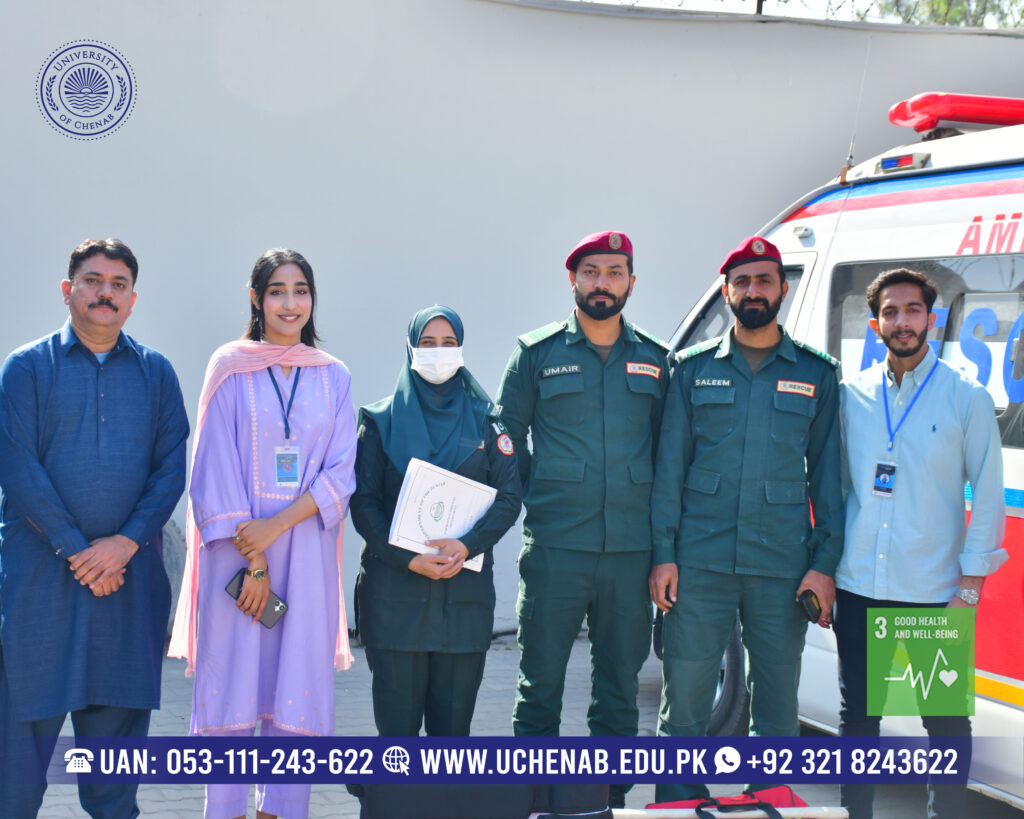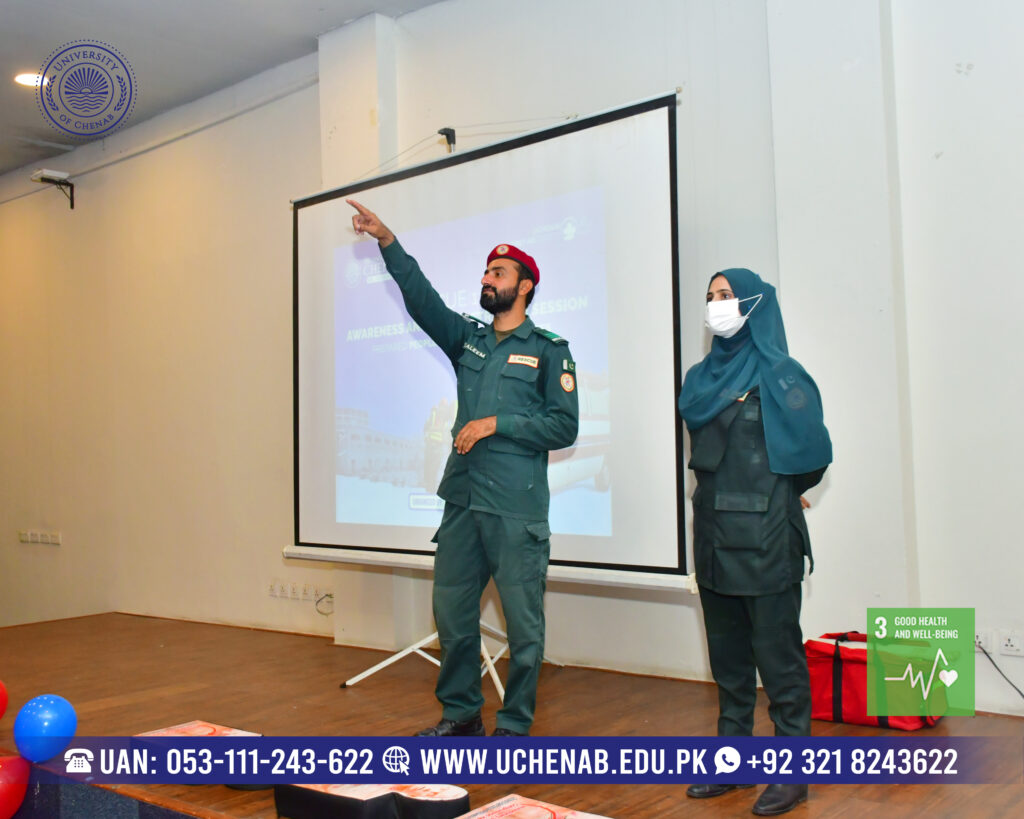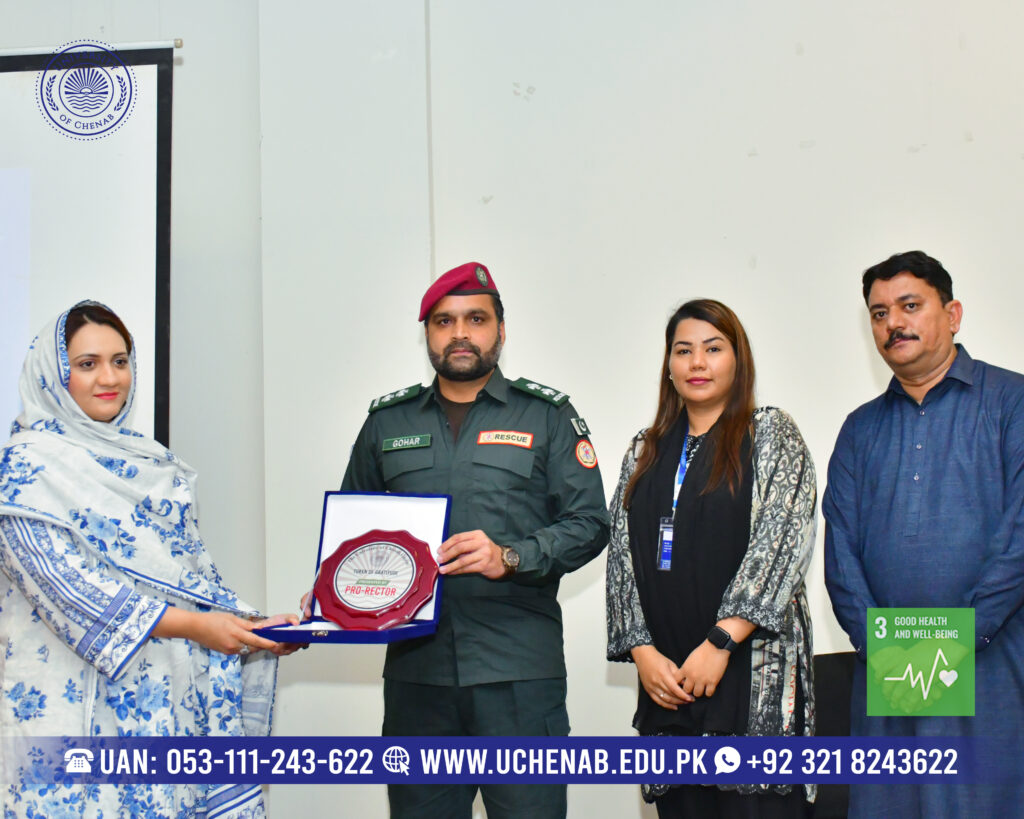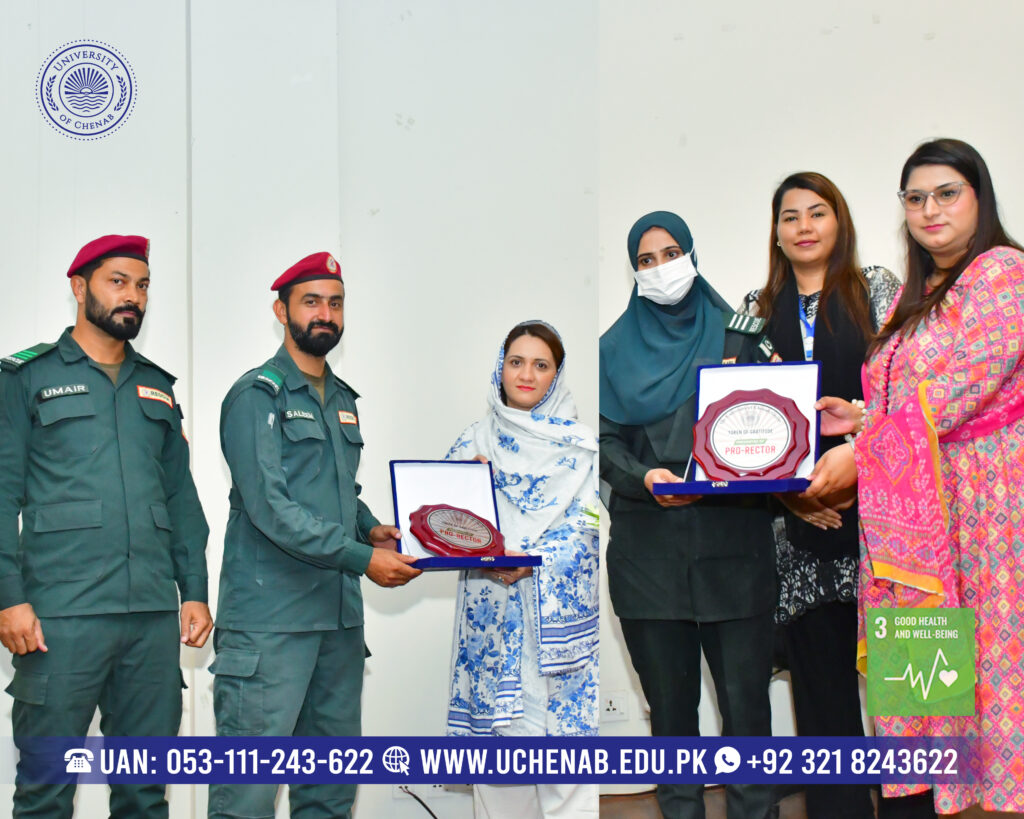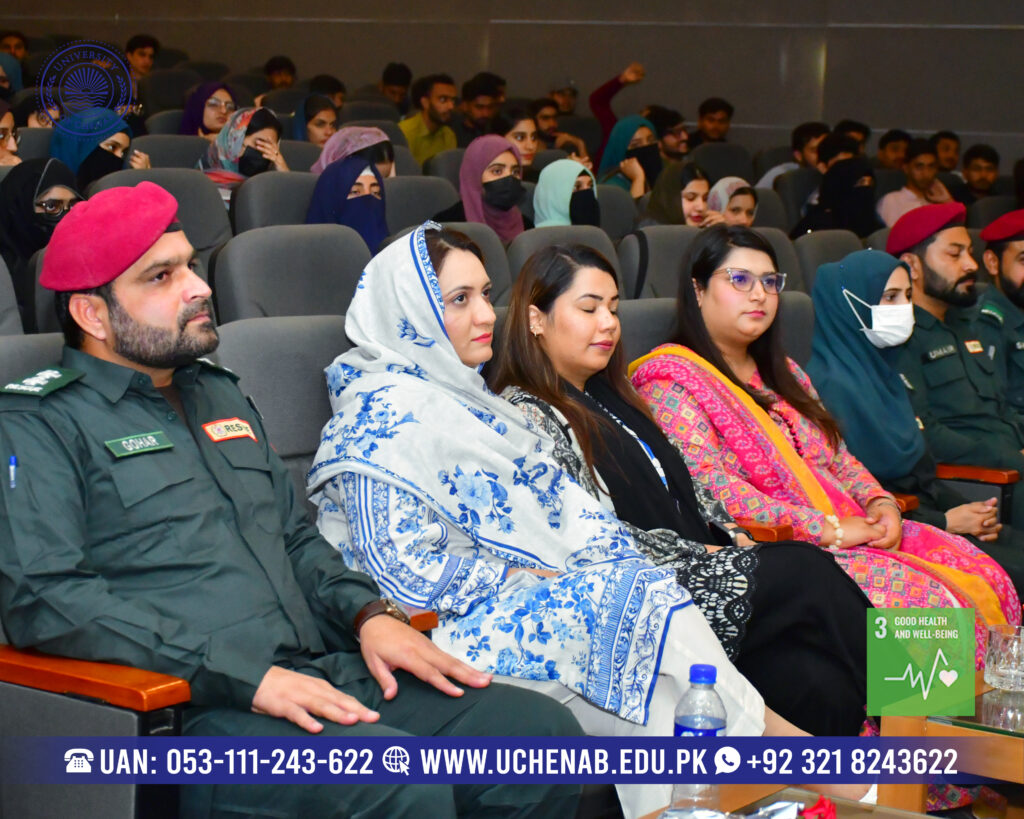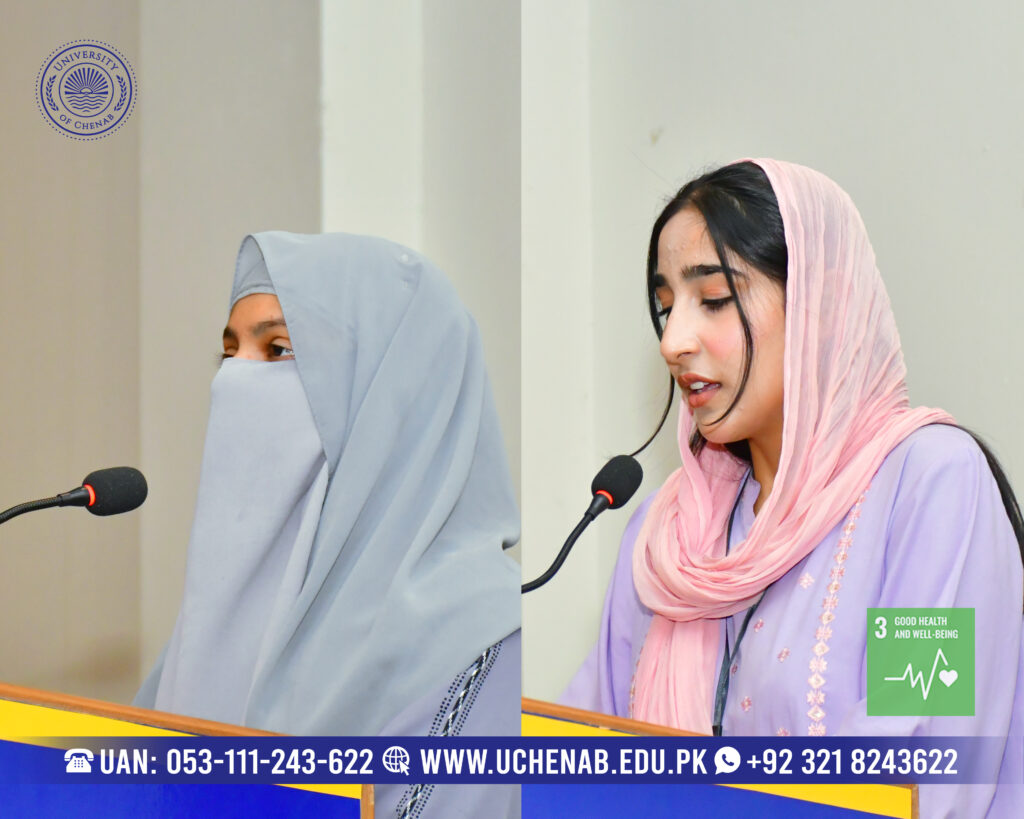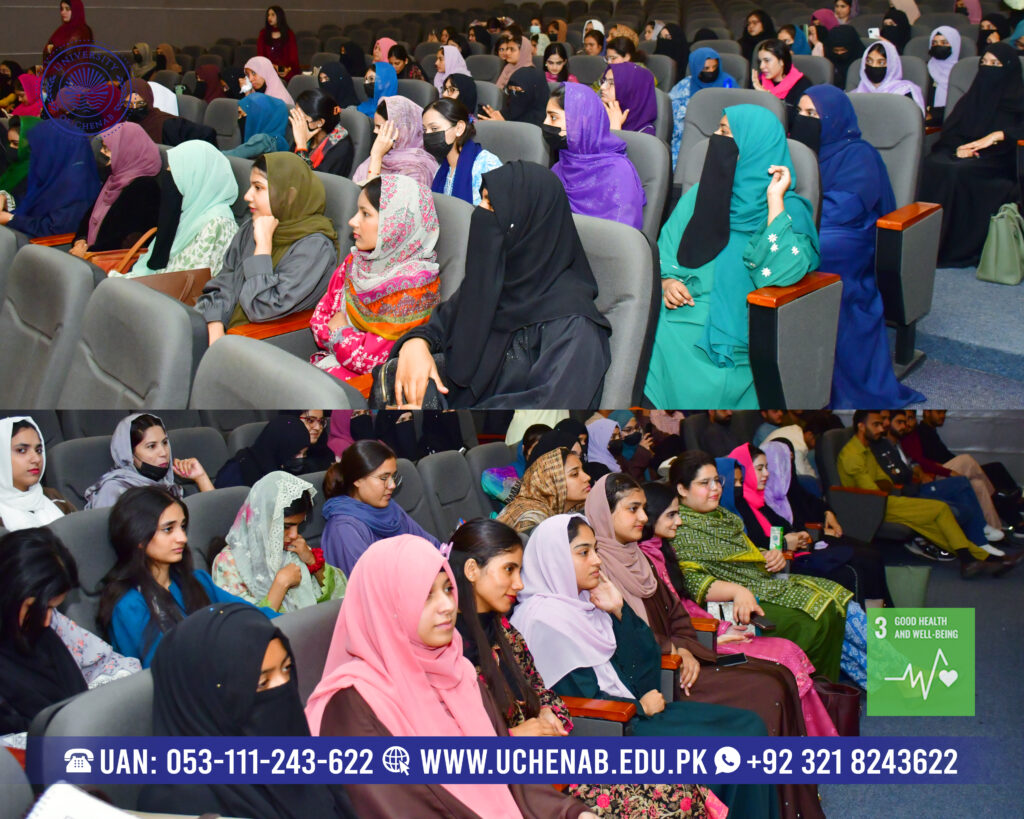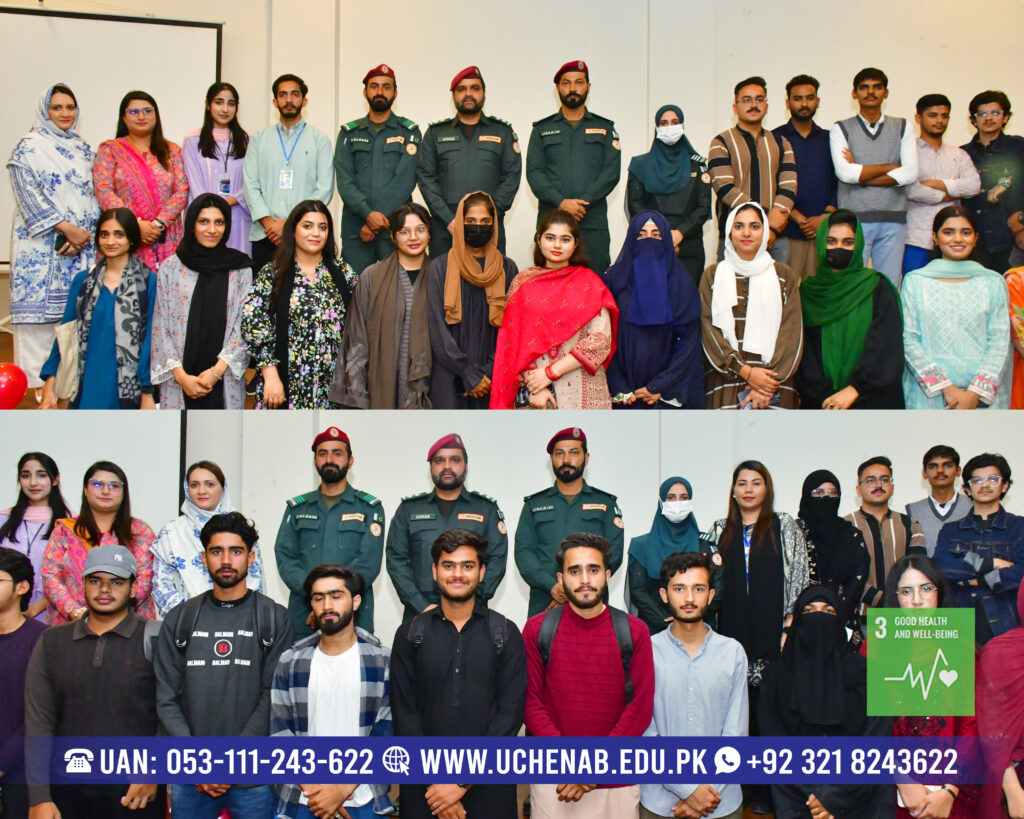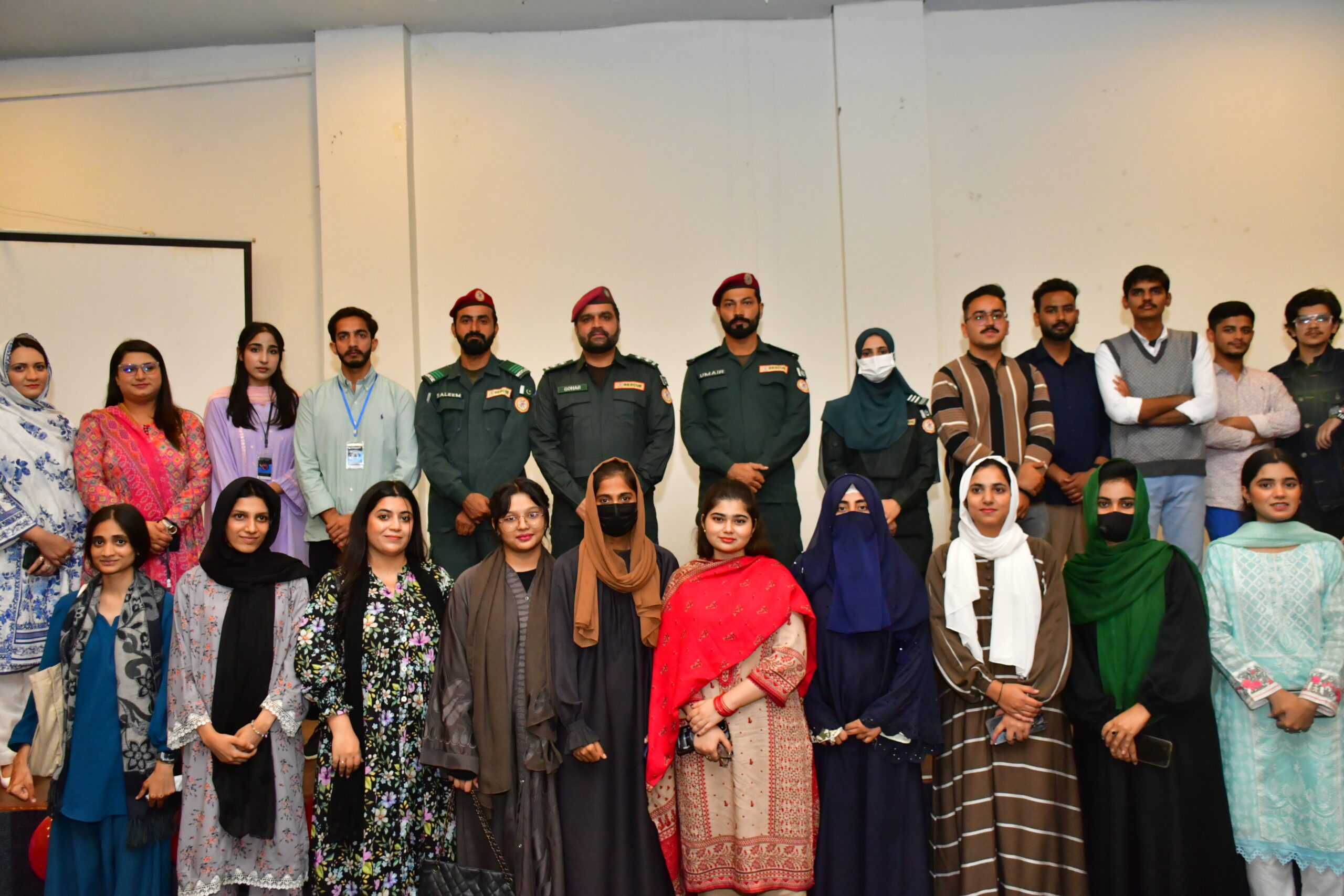The University of Chenab successfully organized UChenab’s First-Aid Awareness session in collaboration with Rescue 1122, promoting a culture of preparedness and safety among students. The event aimed to equip participants with essential life-saving skills and practical knowledge of emergency response, fostering responsibility and community awareness on campus. The session began with an insightful presentation by the Rescue 1122 team, who highlighted the importance of immediate and effective response during emergencies. They explained how prompt action can prevent severe injuries and save lives. Students learned that awareness and composure are vital in handling critical situations both within and outside the university environment.
Following the introduction, expert trainers from Rescue 1122 conducted hands-on demonstrations of key first-aid techniques, including cardiopulmonary resuscitation (CPR), wound dressing, fracture support, and safe evacuation procedures. Participants actively practiced these methods under professional supervision, gaining confidence to respond effectively during emergencies. The trainers also shared real-life rescue experiences, linking theoretical knowledge with practical application to deepen understanding. Moreover, interactive discussions encouraged students to ask questions and clarify misconceptions about first-aid practices. The trainers emphasized teamwork, quick assessment, and the importance of staying calm under pressure. Their practical guidance helped students realize that preparedness is not just a skill but a responsibility toward society.
The session concluded with heartfelt appreciation for the Rescue 1122 team and the UChenab First-Aid Society for their joint efforts in promoting safety and awareness. Through such initiatives, The University of Chenab continues to uphold its commitment to experiential learning, community service, and leadership development. UChenab’s First-Aid Awareness session reflected the institution’s dedication to creating safer and more informed communities.

